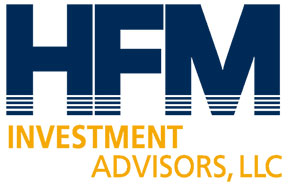
How to Save Money When Buying a Car in Today’s Expensive Market
Ex-car dealership owner Tom Reedman joins Jason to discuss the state of the car industry these days. They discuss why car prices are unbelievably high at the moment, the secret to getting a good price for a car even when they’re really expensive, what to make sure to negotiate when you’re closing on a car at the dealership and what isn’t worth negotiating, and many other car buying tips straight from an ex-car dealership owner.
Tom Reedman operated his family business Reedman World Center. He had a 55-year professional career in the automotive industry, 30 of which were spent in the family business. The Center was accredited by the Philadelphia Inquirer as the original mall concept of selling cars. His uncle started Reedman World Center after World War II and was a pioneer in the automobile business. Reedman World Center was sold in 2004 and it became Reedman Toll Auto World.
Tune into this episode to learn:
- Whether you should lease your new car
- Why vehicle prices are so high at the moment
- What to make sure to negotiate when buying a car
- How to know if you’ve got a good lease
Timestamps
[00:30] Episode overview: Who is Tom Reedman of the Reedman World Center? [02:23] Are gas prices unprecedentedly high? OR What did people do when gas prices were really high in the past? [04:15] How the car business is performing against inflation OR How much people are paying above sticker price to buy a car (and what are the rules?). [06:41] What to do if you absolutely have to buy a car in a bad market? OR The secret to getting a good price for a car in a bad market. [09:16] Should you lease or buy your car? [13:16] Why you have to know the market value of your car before you trade it. [15:48] What to do when a car dealership tries to upsell you (and what’s negotiable?). [19:20] Best car buying tip from an ex-car dealership owner. [20:29] A good lease program vs. a bad lease program.5 Key Highlights
- During the gas crisis of the Carter years, people were trading their Cadillacs for Chevies to save money on gas costs. They were trading expensive cars for cheap ones without considering that gas prices would normalize again.
- People are paying 20% above the sticker price to buy their cars from dealerships. The only rule dealerships have to follow is to list their cars at market value.
- If you want to buy your own car at the end of its lease, make sure to initiate the process for buying that car at least 90 days before the lease expires. If you wait until the lease is over you will have to pay fair market value for your own lease.
- Don’t buy warranties on a car you’re leasing unless you plan on keeping your vehicle. It’s much cheaper to buy warranties upfront.
- What to negotiate in a car dealership: having the warranty and maintenance as part of the car price. Don’t negotiate superficial things like fancier mats, you can get those anywhere.
Useful Links
Know the market value of your car: Kelly Blue Book
Connect with Jason Gabrieli: LinkedIn
Connect with Tyler Reedman: LinkedIn
Like what you’ve heard…
Learn more about HFM HERE
Schedule time to speak with us HERE

102 WEST HIGH STREET, SUITE 200
GLASSBORO, NJ 08028
HFM Investment Advisors, LLC is a registered investment adviser. All statements and opinions expressed are based upon information considered reliable although it should not be relied upon as such. Any statements or opinions are subject to change without notice. Information presented is for educational purposes only and does not intend to make an offer or solicitation for the sale or purchase of any specific securities, investments, or investment strategies. All investments involve risk and are not guaranteed. Information expressed does not take into account your specific situation or objectives and is not intended as a recommendation appropriate for any individual. Listeners are encouraged to seek advice from a qualified tax, legal, or investment advisor to determine whether any information presented may be suitable for their specific situation. Past performance is not indicative of future performance.
